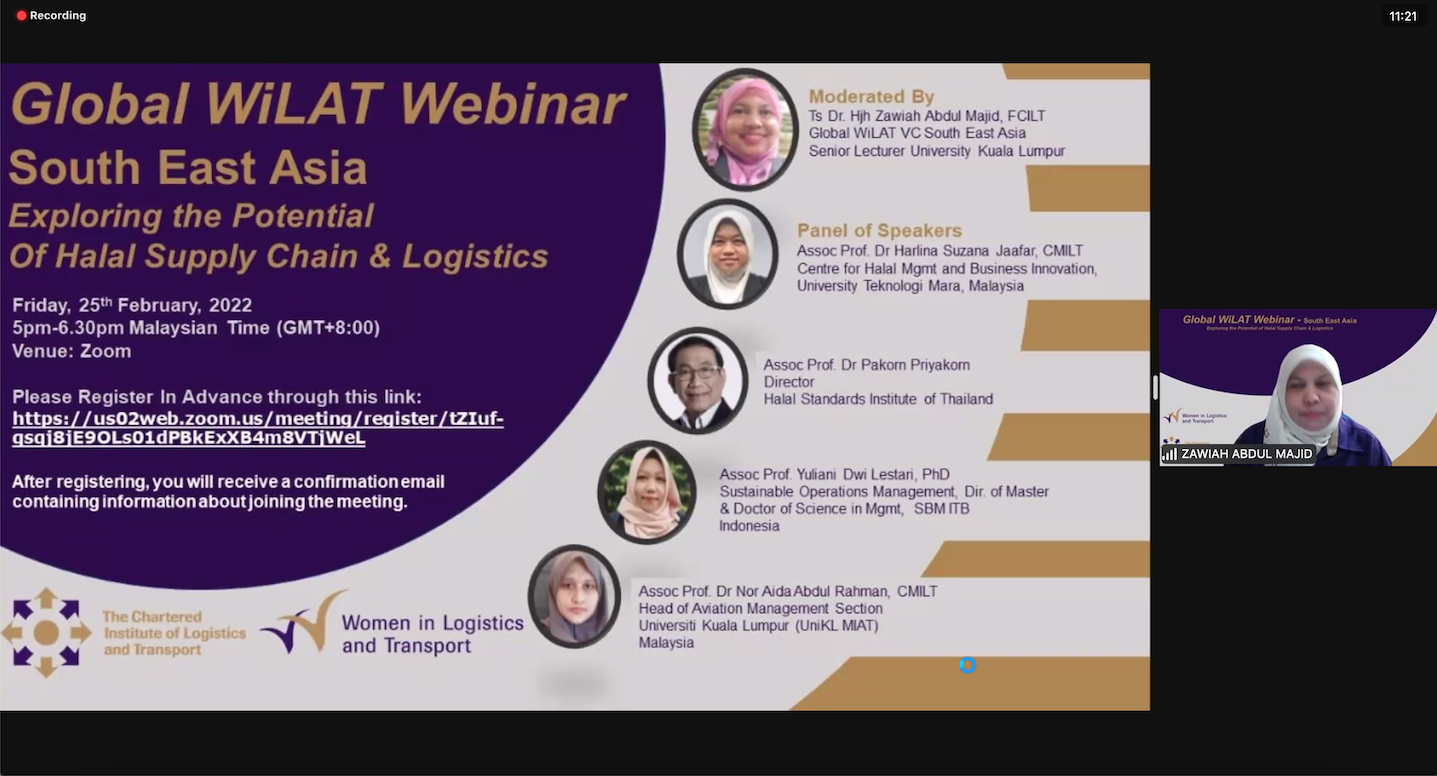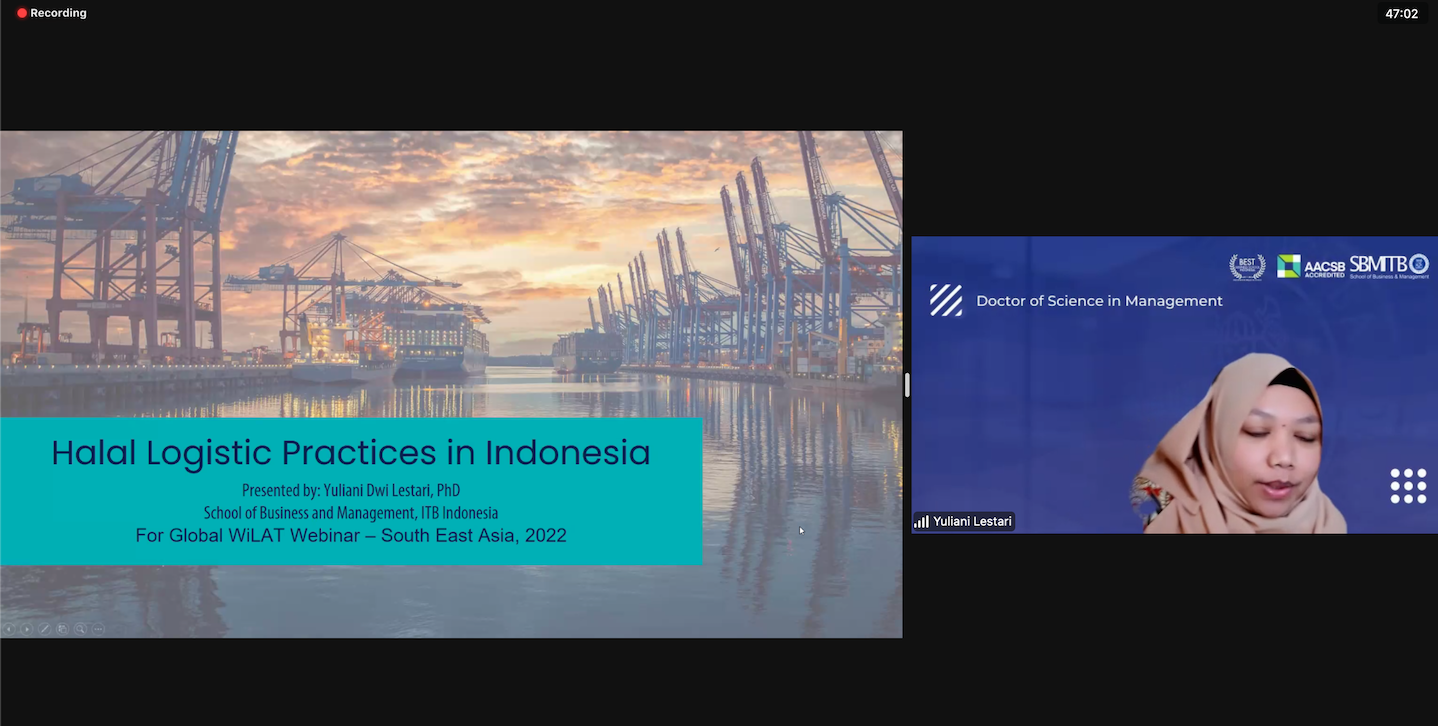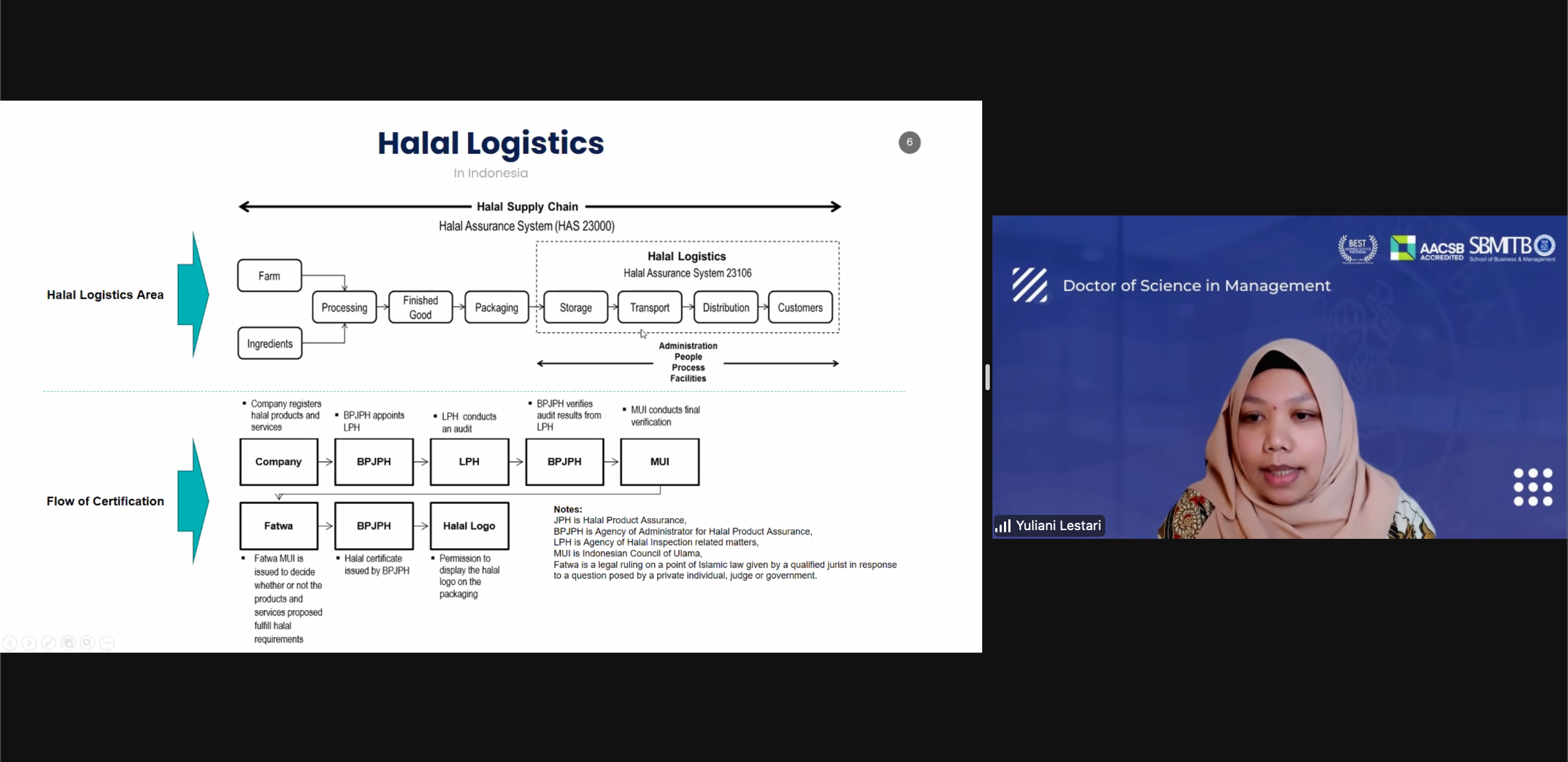As the Islamic economy establishes an increasingly important footing in the global economy, the demand for products and services based on Islamic laws has also increased. Thus, halal certifications have become more critical than ever. The Director of MSM and DSM Program of SBM ITB, Yuliani Dwi Lestari, was invited to share her view on this topic in WiLAT Webinar Southeast Asia on Awareness on Halal Logistics and Supply Management Chain on Friday (25/2/2022).
 The webinar was organized by the Women in Logistics and Transport, a forum under The Chartered Institute of Logistics and Transport. It explores the potential in halal supply chain & logistics and its implementation in SEA countries, such as Indonesia, Malaysia, and Thailand.
The webinar was organized by the Women in Logistics and Transport, a forum under The Chartered Institute of Logistics and Transport. It explores the potential in halal supply chain & logistics and its implementation in SEA countries, such as Indonesia, Malaysia, and Thailand.
Yuliana started off her presentation by explaining the legal framework of halal in Indonesia. Firstly, we need to look at the regulations to understand the halal practice. In Indonesia, it is regulated by Halal Act No.33 of 2014, stating that all products that enter, circulate, and trade in the territory of Indonesia must be halal-certified. The Indonesian Agency of Administrator (BPJPH) issues the halal certificate for Halal Product Assurance based on FATWA by the Indonesian Council of Ulema (MUI).
 Yuliana then shared the general principles of Halal logistics in Indonesia. “The management must determine and specialize in halal policy, overlook the halal management team and implement training procedure. Besides, the company must have written procedures about performing critical activities that can affect the halal status, and facilities must be able to ensure no cross-contamination,” she stated.
Yuliana then shared the general principles of Halal logistics in Indonesia. “The management must determine and specialize in halal policy, overlook the halal management team and implement training procedure. Besides, the company must have written procedures about performing critical activities that can affect the halal status, and facilities must be able to ensure no cross-contamination,” she stated.
Yuliana then gave a real-life example of halal logistic implementation in Indonesia, particularly at Iron Bird Logistics. As Indonesia is the number one highest consumer globally and considers halal assurance important, Iron Bird Logistics sees halal certifications as a necessity, and they want to provide the best service. Although they spent additional costs to design the halal logistics structure, they gained more revenue by opening new business opportunities and trust from the client. Thus, this is a success factor in gaining benefit. Furthermore, having halal service gives an added value to the company.
 Although halal logistics offers many benefits, such as creating a new revenue stream, boosting public trust, and giving additional value, Yuliana recognized that the implementation remains challenging. From both the market and firm’s point of view, they still perceive halal certifications come with a high cost and time consuming. Moreover, the government’s lack of socialization and support of halal logistics creates further constraints for companies to jump into the industry.
Although halal logistics offers many benefits, such as creating a new revenue stream, boosting public trust, and giving additional value, Yuliana recognized that the implementation remains challenging. From both the market and firm’s point of view, they still perceive halal certifications come with a high cost and time consuming. Moreover, the government’s lack of socialization and support of halal logistics creates further constraints for companies to jump into the industry.
“Data indicates that halal logistics is showing a positive trend in Indonesia, meaning the industry is growing. It is necessary to raise awareness and educate about halal certifications. The government needs to increase coordination between halal certification management to ensure efficient service,” Yuliana advises as she closes her presentation.




